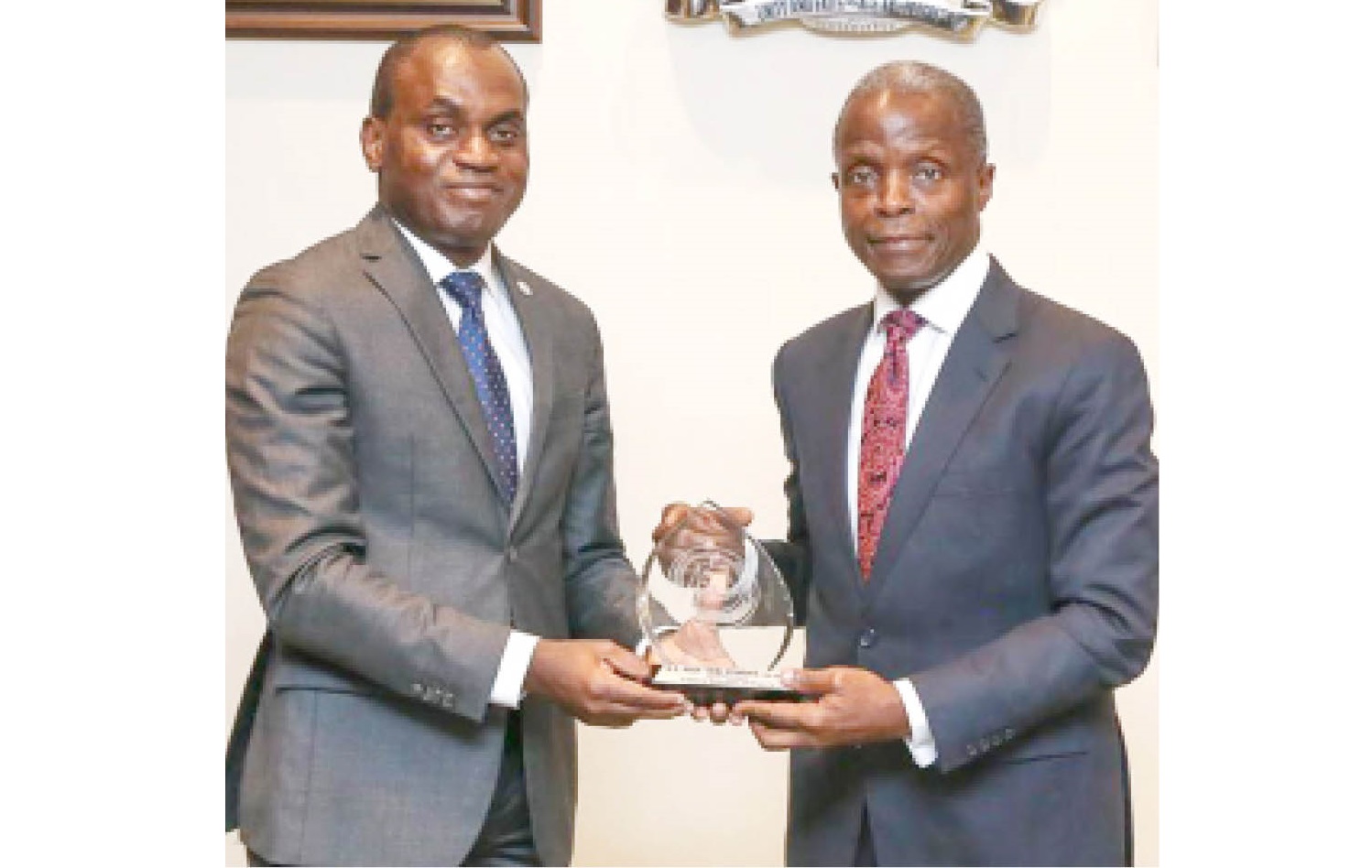How African Court sets rights standards for states
The speedy consideration of matters relating to human rights by the African Court has begun to draw member states’ attention to the importance of rights of citizens. The African Court on Human and Peoples’ Rights was established by virtue of Article 1 of the Protocol to the African Charter on Human and Peoples’ Rights on […]

Vice President Yemi Osinbajo received the President of the African Court, Justice Sylvain Oré at the State House in Abuja in May as part of the Court’s sensitisation for Nigeria’s declaration on the Court’s Protocol.
The speedy consideration of matters relating to human rights by the African Court has begun to draw member states’ attention to the importance of rights of citizens.
The African Court on Human and Peoples’ Rights was established by virtue of Article 1 of the Protocol to the African Charter on Human and Peoples’ Rights on the Establishment of an African Court on Human and Peoples’ Rights (AfCHPR).
The emphasis on human rights is to complement the protective mandate of the African Commission on Human and Peoples’ Rights, with a view to enhancing the protection of human rights on the continent.
The AfCHPR is one of the organs of the African Union (AU) that handle judicial and legal matters as well as human rights issues based in Arusha, Tanzania. The AU is the regional body for Africa with focus on building unity and solidarity and cooperation among Africans.
Human Rights Procedure
The protocol of the African Commission has been applied by the AfCHPR in several high-profile cases with far-reaching implications on human rights and rule of law in member states. One of the recent cases involves Alfred Agbesi Woyome V. Republic of Ghana.
In the application, the Ghanaian businessman, Woyome, who was indicted over payments related to rehabilitation and construction of stadia for the hosting of the 2008 Edition of the Africa Cup on Nations in the country, challenged the judgment of the Review Bench of the country’s Supreme Court.
He submitted that his fundamental rights were violated by the verdict and ought to be rectified pursuant to Article 27(1) of the Protocol to the African Charter on Human and Peoples’ Rights on the Establishment of an African Court on Human and Peoples’ Rights (the Protocol).
Having examined the Ghanaian government’s objection, especially, where it found that it had jurisdiction and that the application was admissible, the court examined the violations alleged by the applicant.
According to its media department, the court held that the “Applicant has not demonstrated or substantiated how he has been discriminated against, treated differently or unequally, resulting in discrimination or unequal treatment based on the criteria laid out under Articles 2 and 3 of the Charter. The court found that the respondent state has not violated these provisions.”
Other matters seeking for reparations and considered by the court in June/July include: Shukurani Masegenya Mango Another v United Republic of Rwanda; Mohammed Abubakar v. United Republic of Rwanda; Wilfred Onyango Nganyi v. Republic of Tanzania among several others.
By sensitising member states, the African Court hopes to make the work of compliance with the African Commission for Human and Peoples Rights easier.
For instance, the President of the Court, Justice Sylvain Oré visited Nigeria where he held meeting with the Vice President Yemi Osinbajo on how the country can make a declaration as required by Article 34(6) of the protocol establishing the court to allow direct application to the court by Nigerian citizens and NGOs having ratified the protocol in 2004.
Justice Oré, who led the delegation, commended the VP on Nigeria’s commitment to make the declaration which, he said, underscored the country’s influential position and unwavering commitment to peace and stability in the region and the continent.
Also, the court is touring other Africa countries including its proposed visits to Comoros Island and the Republic of Zimbabwe to encourage them to ratify the protocol establishing the court.
“For the court to discharge its mandate effectively and further strengthen the African human rights system, a greater number of countries must ratify the protocol and make the declaration under Article 34(6),’’ underlined Justice Oré.
The protocol was signed in June 1998. Of the 30 AU member states which ratified it, only Burkina Faso, Benin, Ghana, Gambia, Cote d’Ivoire, Mali, Malawi, Tanzania and Tunisia have made the declaration under Article 34(6).
The court is composed of 11 judges: nationals of member states of the AU elected in their individual capacities. Six of the justices are females in fulfilment of the gender parity provided for on Article 12(2) and Article 14(3) of the protocol establishing the court.
